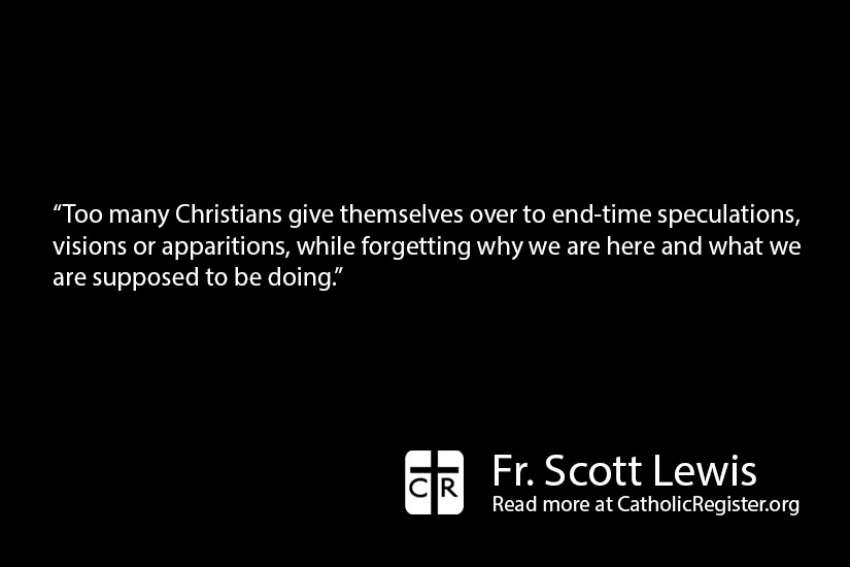In the account of the Ascension, the writers described it in the only way they knew — He faded from their sight, so He must be “up there” in Heaven with God. We should understand the Ascension as the return of Jesus to God the Father, the One who sent Him into the world.
Jesus is equally present in all times and places. In the story, Jesus already overturned the expectations of His disciples. They were convinced that His resurrection and impending ascension signalled the destruction of the Romans and the reestablishment of the kingdom of Israel. Not only did He brush aside that notion, He went on to warn them against speculating or asking when it would happen.
Everything would proceed according to God’s timetable rather than human wishes and expectations. God had other plans that involved the gift of the Holy Spirit and the proclamation of the Gospel to the ends of the Earth.
As He appeared to ascend into the heavens, the disciples and the crowd stood gawking at the sight. There was a warning from two white-robed figures, whom we can assume were angels. The onlookers were admonished not to be captivated by what they had seen or to spend their time and attention anticipating the return of the Lord. He would return in due course, but it would be evident to all.
In the meantime, there was much work to do. The calling of a disciple of Jesus is to be about the Lord’s work, proclaiming the Good News and being a source of hope and comfort for others. This is a timely and appropriate reminder. Too many Christians give themselves over to end-time speculations, visions or apparitions, while forgetting why we are here and what we are supposed to be doing.
How do we know and understand Jesus and our mission? The author of Ephesians prays that God give believers the spirit of wisdom and revelation. The “eyes of the heart” will be enlightened, bringing deeper understanding and a closer relationship with God.
We do not figure God out, nor do we intellectualize our understanding of Jesus. It is a matter of the heart — not necessarily warm feelings, but a deep, inward and intuitive sense that enlightens, teaches and guides. The Jewish tradition understood the heart, rather than the brain, as the seat of understanding, hence the phrase “hardening of heart” to describe a rigid and closed attitude.
Even meeting the risen Jesus face to face was not enough for some of the disciples. It is interesting to note that even while they worshipped Jesus, some doubted. There is no way that one can prove the Resurrection, for there is never enough proof for most people. The only credible evidence is a transformed and Christ-like life.
In Matthew’s version, Jesus gave them an important charge before His ascension. They were to make disciples of all nations and teach to others everything He had taught them. The intention was to share the joyful and life-giving message of Jesus and not just to fill churches. Unfortunately, the historical record of this mission is tarnished by instances of coerced conversions and the destruction of indigenous cultures and religions. This was never its intent.
As we share the gift we have, we also should be humble enough to receive the gift that others have for us. We cannot “make disciples” of anyone unless we ourselves are true disciples — and true disciples never force, bully or belittle.
In our own time, helping others, as well as society, to be more compassionate, merciful, generous, forgiving and non-violent would truly be making disciples of all nations. This is the work that calls us away from gazing up to Heaven and towards a life of service.
Faith is a vibrant, dynamic and joyful force, not something static or self-oriented. As we fulfil this mission, we also encounter the Lord for whom we wait, for He promised to be with us on the journey until the end of time.


